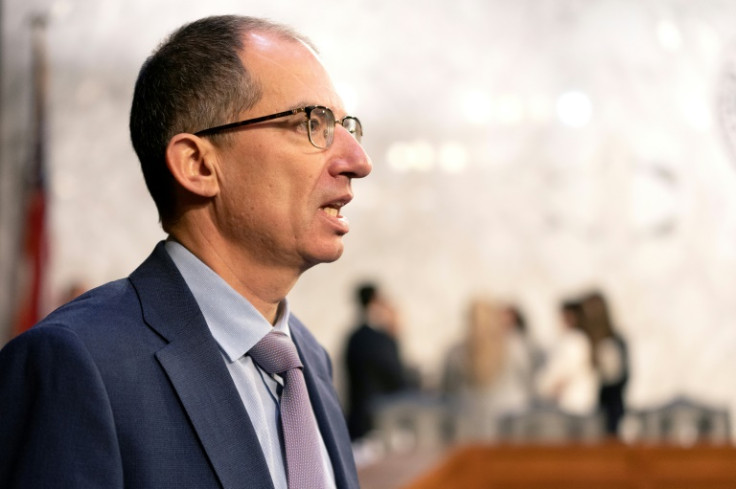Moderna CEO Says Melanoma Vaccine Could Be Available By 2025

Moderna CEO Stephane Bancel told AFP his company's experimental vaccine against melanoma could be available in as little as two years, in what would amount to a landmark step against the most serious form of skin cancer.
Globally there were an estimated 325,000 new melanoma cases and 57 ,000 deaths from the disease in 2020.
"We think that in some countries the product could be launched under accelerated approval by 2025," he said in an interview.
Unlike conventional vaccines, so-called therapeutic vaccines treat rather than prevent a disease. But they also work by training the body's own immune system against the invader.
Therapeutic vaccines today represent a real hope in oncology, an "immunotherapy 2.0," according to Bancel.
Moderna's aspirations received a boost Thursday with the latest clinical trial results showing an improvement over time in the chances of survival thanks to the vaccine, which uses the same messenger RNA technology that proved highly effective against serious forms of Covid-19.
In a study involving 157 people with advanced melanoma, the Moderna vaccine in combination with Merck's immunotherapy drug Keytruda reduced the risk of recurrence or death by 49 percent over a period of three years, compared with Keytruda alone.
Moderna had already announced two-year monitoring results last year, which showed a risk reduction of 44 percent.
"The difference in survival is growing. The more time passes, the more you see that advantage" said Bancel, noting that the rate of side effects hadn't increased.
"We have one in two people, compared to the best product on the market, who survive," he said, "which in oncology is huge."
The existing clinical evidence could thus form the basis for conditional approval of the vaccine, for now known as mRNA-4157, said Bancel.
Under this scenario, a larger, "phase three" study involving a thousand people that Moderna is carrying out in 2024 could confirm the earlier conditional authorization.
Both the US Food and Drug Administration and the European Medicines Agency have placed the therapy on an expedited review pathway.
The vaccine's development begins with sequencing the genome of each patient's tumor and identifying specific mutations to encode against. It is thus an example of "individualized" medicine tailored "just for you," said Bancel.
To prepare for market launch, Moderna is building a new factory in Massachusetts in order to have plentiful supply, a requirement of the FDA.
It also announced Monday that it was starting a phase 3 trial for an mRNA vaccine against lung cancer. Other types of tumors are also being studied.
Bancel's hope is to eventually pair these cancer vaccines with "liquid biopsies" -- groundbreaking tests that detect signs of tumors earlier, via blood tests, and are starting to become available in the United States.
The faster you can detect cancer, the better Moderna's new drugs will work, Bancel believes.
Other companies, such as BioNTech, are also working on individualized therapeutic cancer vaccines.
© Copyright AFP 2024. All rights reserved.




















